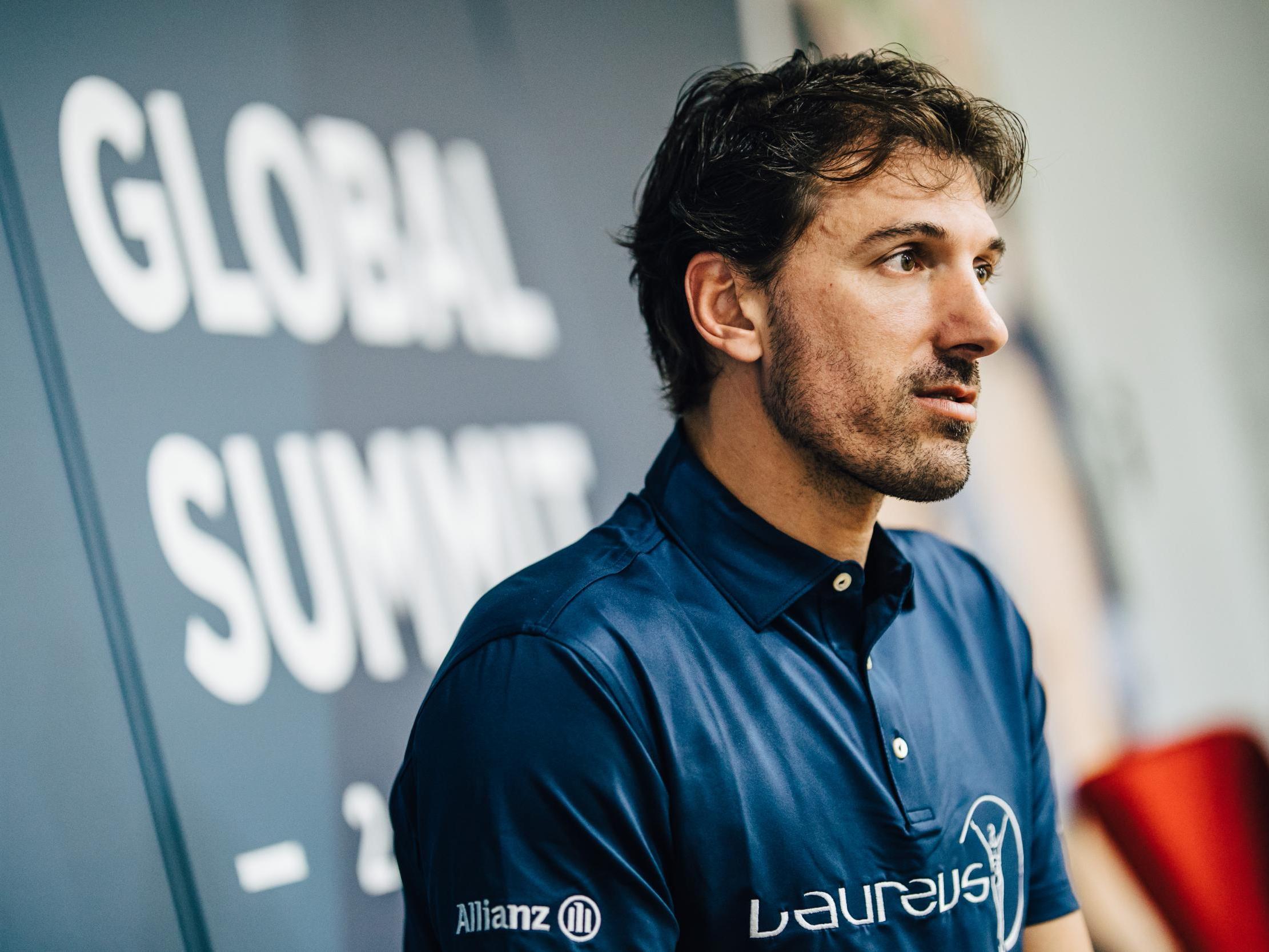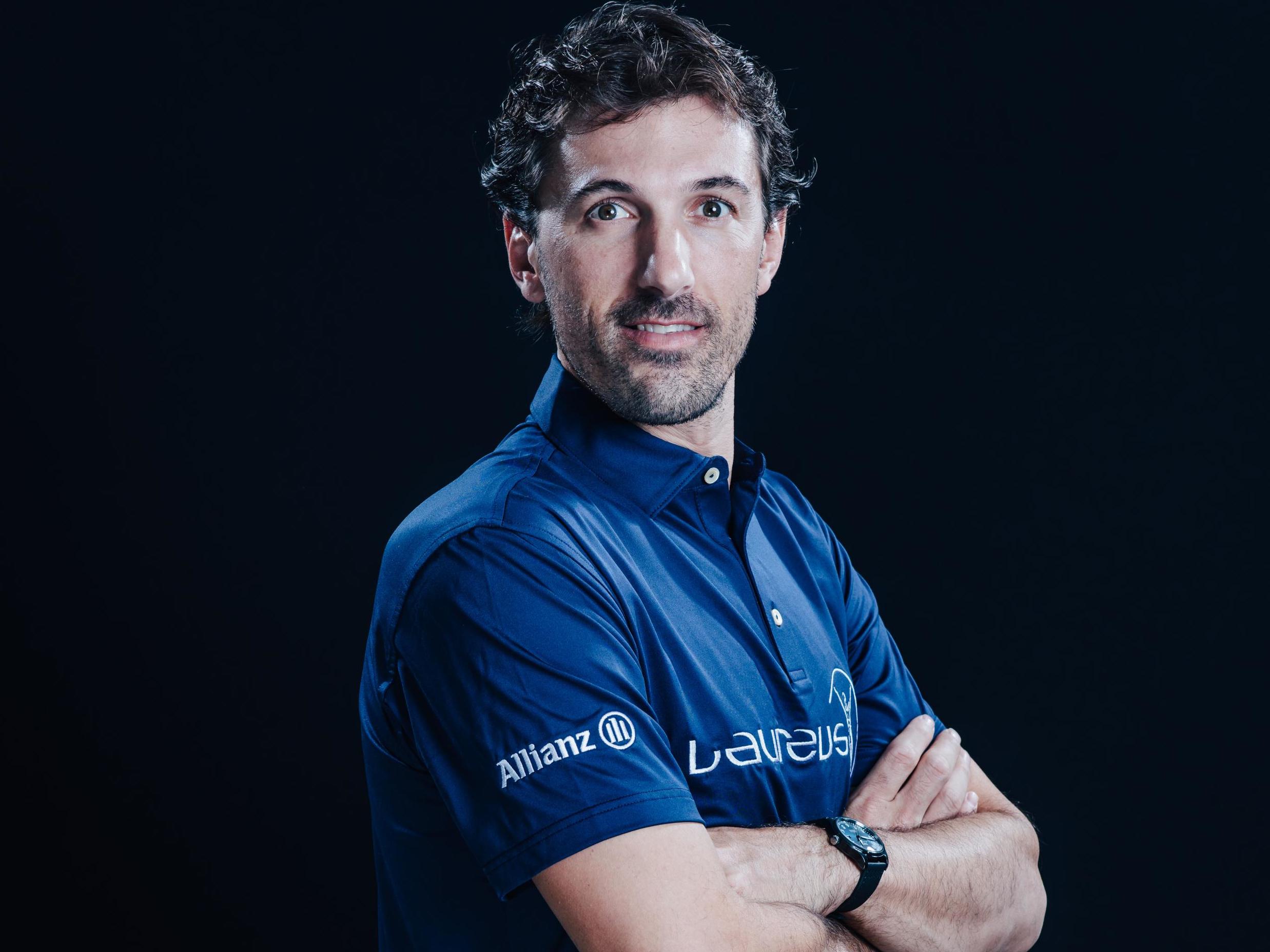Fabian Cancellara interview: ‘Racing is business, but cycling is about mental wellbeing’
The Swiss cycling legend tells Lawrence Ostlere in Paris about the racing instinct which drove him to success, his respect for Team Sky and how he has rediscovered his love of riding for the hell of it


Your support helps us to tell the story
From reproductive rights to climate change to Big Tech, The Independent is on the ground when the story is developing. Whether it's investigating the financials of Elon Musk's pro-Trump PAC or producing our latest documentary, 'The A Word', which shines a light on the American women fighting for reproductive rights, we know how important it is to parse out the facts from the messaging.
At such a critical moment in US history, we need reporters on the ground. Your donation allows us to keep sending journalists to speak to both sides of the story.
The Independent is trusted by Americans across the entire political spectrum. And unlike many other quality news outlets, we choose not to lock Americans out of our reporting and analysis with paywalls. We believe quality journalism should be available to everyone, paid for by those who can afford it.
Your support makes all the difference.Fabian Cancellara was a master of choosing the right moment to attack. In road racing this is a delicate balance: push too soon and your body gives out, wait too long and you miss your chance. Every possible factor feeds into a rider’s calculations – distance remaining, energy in the tank, rivals’ styles and strengths, course pinch-points, weather – but it comes down to an innate sense of timing, and the best riders can feel it.
Cancellara evolved through his career, later perfecting the game of sprinter’s bluff, but in his early years he would often choose a precise moment, usually well before the finish but deep enough into the race so that his body was groaning and his legs were screaming. That’s when he knew everyone else was hurting too, when he would take a leap of faith and ride into the pain knowing no one else would last.
His attacks were masked by a freakish serenity, sat in his saddle gently grinding his rivals into the cobblestone, with the unwitting look of a man who hadn’t noticed his hat was on fire. He was one of the all-time great time-triallists winning four world titles and two Olympic golds, as well as a fearless descender with majestic balance, but the enduring image is of ‘Sparticus’ surging off through the dust and dirt of the monument classics, like his 2010 Paris-Roubaix triumph when he ripped away from the rest to reach the Roubaix velodrome alone an hour later, or his 2013 Tour of Flanders victory when he sensed Peter Sagan weakening and pounced.
“It’s instinct,” he explains. “Just to attack because on the morning of the race someone said ‘do this at that kilometre’ – it doesn’t work. It comes with instinct and that’s where I got my success. You can be as strong as a horse, as strong as you want, but if the race is not the scenario [you prepared for] then you need to adapt. And if you cannot adapt – boom.”
If someone is too good then everyone points. That’s normal
Cancellara is sitting in a small room at the Laureus global summit in Paris, an organisation which supports underprivileged children around the world through the power of sport, with whom he has been involved since he retired in 2016. He spent much of his morning hearing from a programme leader in Mozambique who uses football coaching to turn boys in Kruger National Park away from a dangerous life of poaching, and he is inspired to develop projects in his home country, Switzerland.
He discusses racing with the same steely-eyed focus that he rode with, not so much reminiscing as simply remembering, and insists he doesn’t miss it; despite a 15-year career, Cancellara has few ties left in the professional scene and that is how he reflects on cycling – not a passion but a profession. “You come into cycling alone, you come out alone. [Other riders] are not your friends, they are business colleagues. They are paid to ride. It’s business.”
It would be understandable if he wanted to forget some of the moments in his career which had to be endured rather than enjoyed. Like the mistake he made at the London Olympics when he fell as he led the road race; or the 2012 Tour of Flanders when he crashed riding over a water bottle and cracked his collar bone in four places, requiring two operations to fix; or the persistent illness and broken vertebrae which pushed him towards retirement.
Or the unproven accusations of using a covert mechanical device – motor doping – during the 2010 season. Later, when Cancellara’s great rival Tom Boonen was asked whether or not the best rider always wins the Tour of Flanders, he replied: “Most of the time… I can’t really recall one year… Well I can recall one year…” before tailing off. Cancellara dismissed the claims as “so stupid I’m speechless”, and hasn’t discussed them a great deal since.

He retains a reputation of respectability and integrity, but like so much in sport and particularly in cycling, his legacy of eye-catching racing requires its own kind of faith. How does he reflect on those difficulties now, on people questioning him? He pauses for a moment, and his excellent English begins to break up a little. “I learned a lot of things, I had a lot of experiences on all kinds of levels, on the good side and bad side. I took my time off [after injury] and [my recovery] fell behind schedule. I crashed down. I went through everything. My whole career – I went through a big school.”
Perhaps it isn’t a surprise that he doesn’t miss the competition, and that in retirement he has rekindled his love of cycling just for the hell of it, and of the freedom which got him hooked when he first rode around the woods near his home outside Bern as a child on a rusty old bike he found in the garage. The way he describes a “bicycle”, rather than a bike, chimes with the simplicity of life on two wheels which he has more time than ever to appreciate, and which Laureus is attempting to harness in its social projects.
“Right now I would love to ride,” he says, looking longingly out of the window at the autumn sun. “It’s a beautiful day. That’s what I love about the bicycle, the mental fitness it gives you. You go out, one hour, and you will definitely be feeling better. It’s not the coffee that helps, it’s an individual mental refreshment.
“I need to ride one or two hours. I don’t need five or six hours, or the competition. Once in a while I like to go intense, but cycling is about mental wellbeing. It is not only hope but if in life you are struggling – maybe the kids are getting kicked out in school, maybe problems in a friendship group, or just no balance in life – I think the bicycle can help. Without balance you don’t stay on, you fall.”
He remains a fan of the sport and unlike many on the continent, including the head of world cycling David Lappartient, he doesn’t see the dominance of Team Sky as a problem. “Team Sky has the best team, they do the most not only with riders but behind with training, research, mental, physical – they’re just ahead of the other ones. I think [Sky’s impact on the sport] is definitely positive. The other teams have to work harder or be smarter. Because someone has more money it doesn’t mean they always have to be the strongest.
“It’s too easy to point at them,” he says, before adding something that perhaps comes from personal experience. “Because if someone is too good then everyone points. That’s normal.”
With that, he heads back to the throng of the summit. He plays a significant role in the Swiss arm of Laureus’s work, alongside business executives getting projects up and running. His hope is that the power of the bicycle can effect real change, in people’s physical health but also in their mental wellbeing. Bike racing was business, one Cancellara had a fierce instinct for, but to him the bicycle means much more. This is his own faith, and it is one you suspect will never be broken.
Fabian Cancellara was speaking at the Laureus Sport for Good Global Summit in partnership with Allianz.
Join our commenting forum
Join thought-provoking conversations, follow other Independent readers and see their replies
Comments